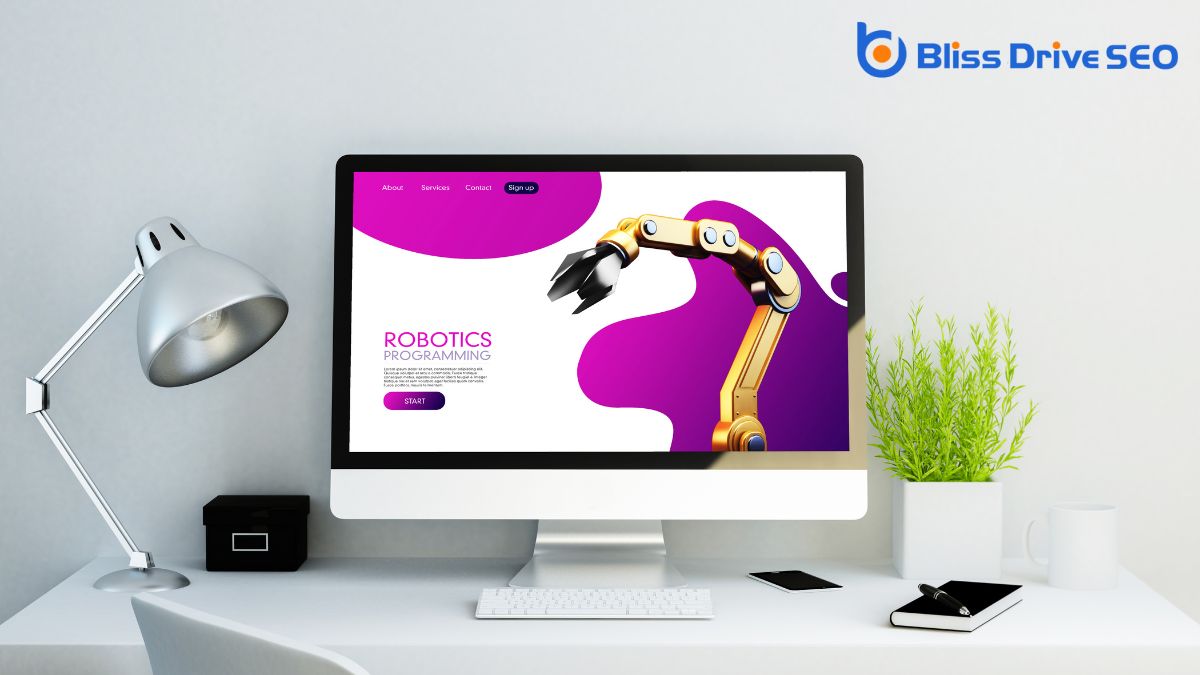Digital Marketing Services
Learn More About Us

You're starting a business and wondering how much SEO will cost you. It's not just about numbers; it's about understanding what you're getting for your investment. Should you hire a freelancer for a more reasonable price or go with an agency for their expertise? Take into account the competition in your industry and your specific goals. It's important to balance cost with the potential return on investment. But what about building an in-house team or budgeting for necessary SEO toolsSoftware and online tools used for various aspects of SEO, such as keyword research and link buildin...? These decisions can greatly influence your startup's visibility, and there's more to take into account than you might realize.

Several key elements influence the cost of SEO for a startup, and understanding them can help you budget effectively.
First, consider the level of competition in your industry. If you're entering a highly competitive market, you'll likely need a more aggressive and costly SEO strategy to stand out. On the other hand, nicheA specific segment of the market targeted by affiliates to promote products or services. markets might require less investment, as there's less competition for specific keywordsWords or phrases that users type into search engines to find information..
Next, think about the current state of your website. If it's brand new or lacks optimization, you'll need to invest more in foundational SEO work, like improving site structure, content, and technical SEOOptimizing the server and website structure to improve search engine crawling and indexing. aspects. This initial groundwork is pivotal for long-term success and can affect upfront costs.
Your goals also play a significant role. Are you aiming for local visibility, or do you have national or global aspirations? Broader scopes typically involve more extensive keyword researchThe process of finding and analyzing search terms that people enter into search engines., content creation, and link-building efforts, which can increase costs.
When considering SEO pricing models for your startup, you'll often encounter the hourly rate structure and monthly retainer fees.
With the hourly rate, you pay for the exact time spent on your project, which can offer flexibility but may leadA potential customer referred by an affiliate who has shown interest in the product or service but h... to unpredictable costs.
On the other hand, a monthly retainer provides a consistent fee for ongoing services, helping you budget more effectively.
Exploring the hourly rate structure in SEO pricing models offers startups a flexible way to manage their budgets and project scopes. With this approach, you pay only for the hours an SEO expert dedicates to your project. This can be particularly advantageous if you're uncertain about the extent of SEO services you need or if your requirements frequently change.
When you opt for an hourly rate, you gain the ability to control costs based on the specific tasks performed. This can include keyword research, site audits, or content optimizationImproving content to enhance its performance and effectiveness.. By prioritizing tasks, you make sure that the most important areas receive attention first, maximizing the value of each hour spent.
However, it's crucial to have a clear understanding of the expert's hourly rate and the estimated time required for each task. Rates can vary widely based on expertise and location, typically ranging from $75 to $200 per hour. It's important to communicate clearly about the scope of work to avoid unexpected expenses.
Monthly retainer fees offer startups a structured and predictable way to manage their SEO expenses. By agreeing to a set fee each month, you can plan your budget without worrying about unexpected costs. This pricing model is particularly advantageous if you want continuous support and consistent improvements in your SEO strategy. It allows you to work closely with an SEO agency or consultant, making sure they understand your goals and can align their efforts with your business growth.
When you choose a monthly retainer, you're essentially entering a partnership. This means you'll receive ongoing services like keyword research, content optimization, and performance tracking. Agencies typically provide regular reports so you can see how your SEO efforts are paying off. It's a proactive approach that helps keep your online visibility on track.
However, it's vital to assess whether this model fits your needs. If you're anticipating rapid changes or prefer a more flexible arrangement, monthly retainers mightn't be your best option.
Always evaluate the scope of services included in the retainer and make sure they align with your objectives. With clear communication, monthly retainers can effectively support your startup's SEO journey.
When you're considering SEO for your startup, you'll need to weigh the cost differences between hiring an agency and a freelancer.
Agencies often have higher rates due to their larger teams and extensive services, while freelancers might offer more flexible pricing.
However, don't forget to compare the quality of service, as agencies may provide a more structured approach, whereas freelancers can offer personalized attention.
Choosing between an agency and a freelancer for your startup's SEO needs involves understanding the distinct pricing structures each offers. Agencies often come with higher price tags due to their all-inclusive services and team-based approach. They usually charge on a monthly retainer basis, which can provide stability and consistent support for your evolving needs.
On the other hand, freelancers might offer more flexibility and cost-effectiveness, often billing on an hourly rate or per-project basis.
Here's a breakdown of what you might expect:
Comparing service quality between agencies and freelancers requires a keen understanding of what each can bring to the table for your startup's SEO strategy.
Agencies often offer a team of experts with diverse skills, providing a thorough approach to SEO. They've got more resources and tools, ensuring a well-rounded strategy. This can translate into higher costs, but the level of service and support can justify the expense. Agencies are also more likely to have experience with startups and can offer valuable insights and strategies tailored to your needs.
On the other hand, freelancers typically offer a more individualized service. They can be more flexible and adaptive, adjusting quickly to your specific requirements. Freelancers often charge lower rates, making them an appealing option if you're on a tight budget. However, the quality and depth of service might vary based on their experience and expertise. You might find a freelancer who specializes in certain aspects of SEO, but they may lack the broader scope an agency provides.
Ultimately, deciding between an agency and a freelancer hinges on your startup's unique needs, budget, and the level of expertise you're seeking for your SEO efforts.
Establishing an in-house SEO team can be a strategic move for startups seeking to maintain control over their digital marketing efforts. By building your own team, you guarantee that your SEO strategy is tailored specifically to your brand's needs and goals. This approach allows for greater flexibility and quicker adjustments, which is vital in the fast-paced digital landscape. Additionally, an in-house team can foster closer collaboration across departments, enhancing overall brand consistencyMaintaining uniformity in brand messaging and visual elements across all channels and touchpoints..
When deciding to create an in-house SEO team, consider the following key steps:
With the right team in place, you'll be better positioned to drive sustainable growth and achieve your startup's digital marketing ambitions.
After assembling your in-house team, it's important to equip them with the right tools to maximize their productivity and effectiveness. SEO tools play an important role in helping your team analyze data, track performance, and optimize content. But how do you budget for these tools without overspending?
Start by identifying the essential tools your team needs. Keyword research tools, analyticsThe systematic computational analysis of data or statistics to gain insights and support decision-ma... software, and backlink trackers are often must-haves. You can find free versions of some tools, but investing in premium options often provides more features and better support.
Popular options include SEMrush, Ahrefs, and Moz, each offering different pricing tiers to suit various budgets.
Consider the size of your team and your specific business needs when selecting tools. If your startup is small, you might only need one or two licenses per tool. Some providers offer discounted rates for startups, so don't hesitate to ask.
Evaluate the return on investment. Will these tools help you achieve your SEO goals faster or more efficiently? If the answer is yes, allocate a reasonable portion of your budget to cover these costs. Remember, investing in the right tools can significantly impact your startup's SEO success.

Crafting a startup's SEO budget can feel overwhelming, but breaking it down into manageable parts helps. Start by understanding the components that will influence your costs. Consider the following steps to estimate your SEO budget effectively.
When considering SEO costs for your startup, weigh factors like competition, website status, and goals. Decide between freelancers and agencies based on your budget and desired expertise. Freelancers might be cheaper, but agencies often provide more extensive services. Don't forget to budget for SEO tools or consider building an in-house team. Ultimately, align your investment with your goals to maximize your online presence and growth. Prioritize carefully to make the most of your SEO budget.
